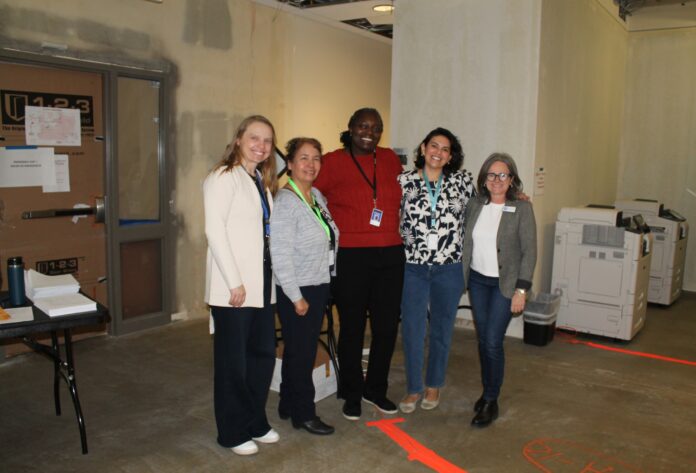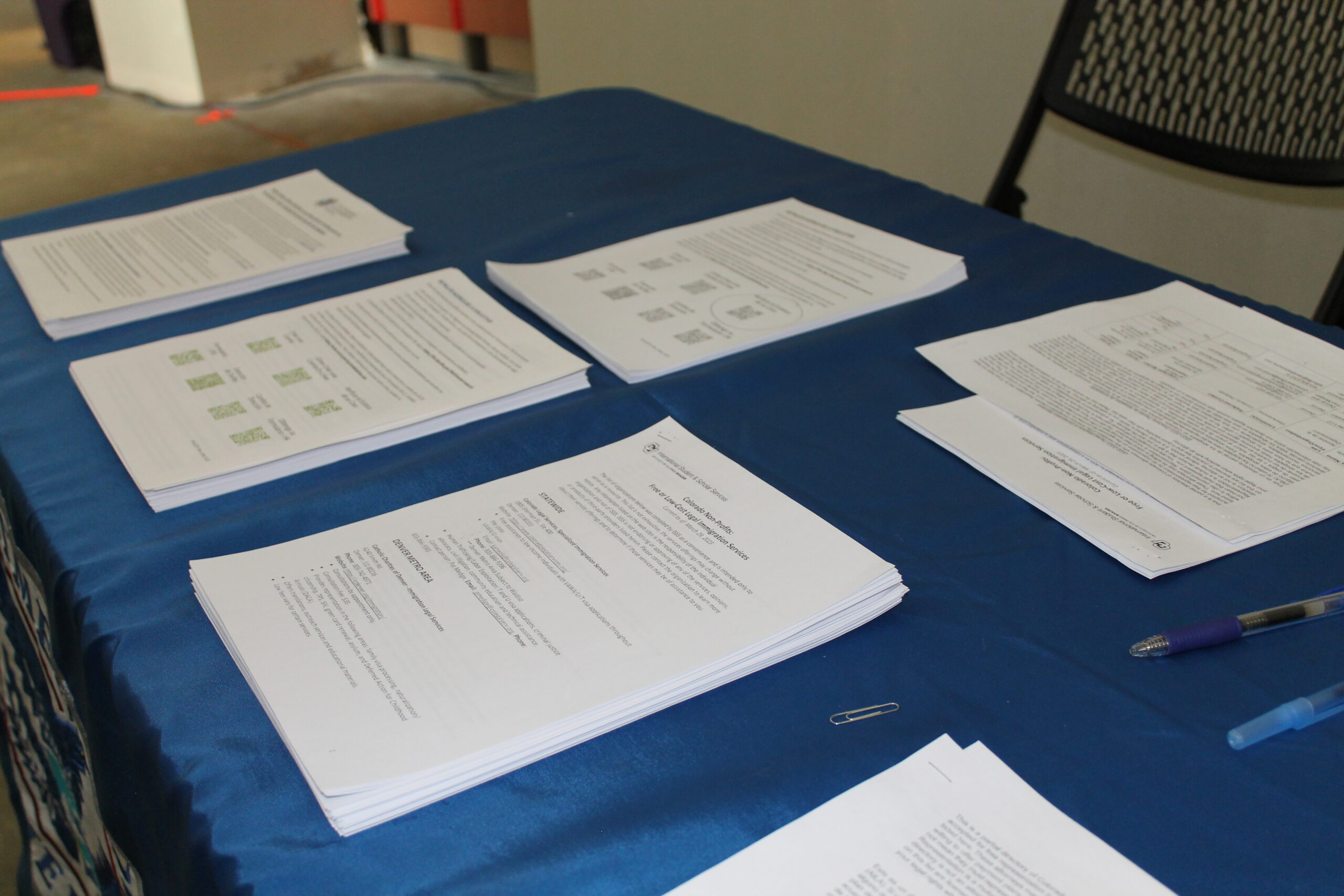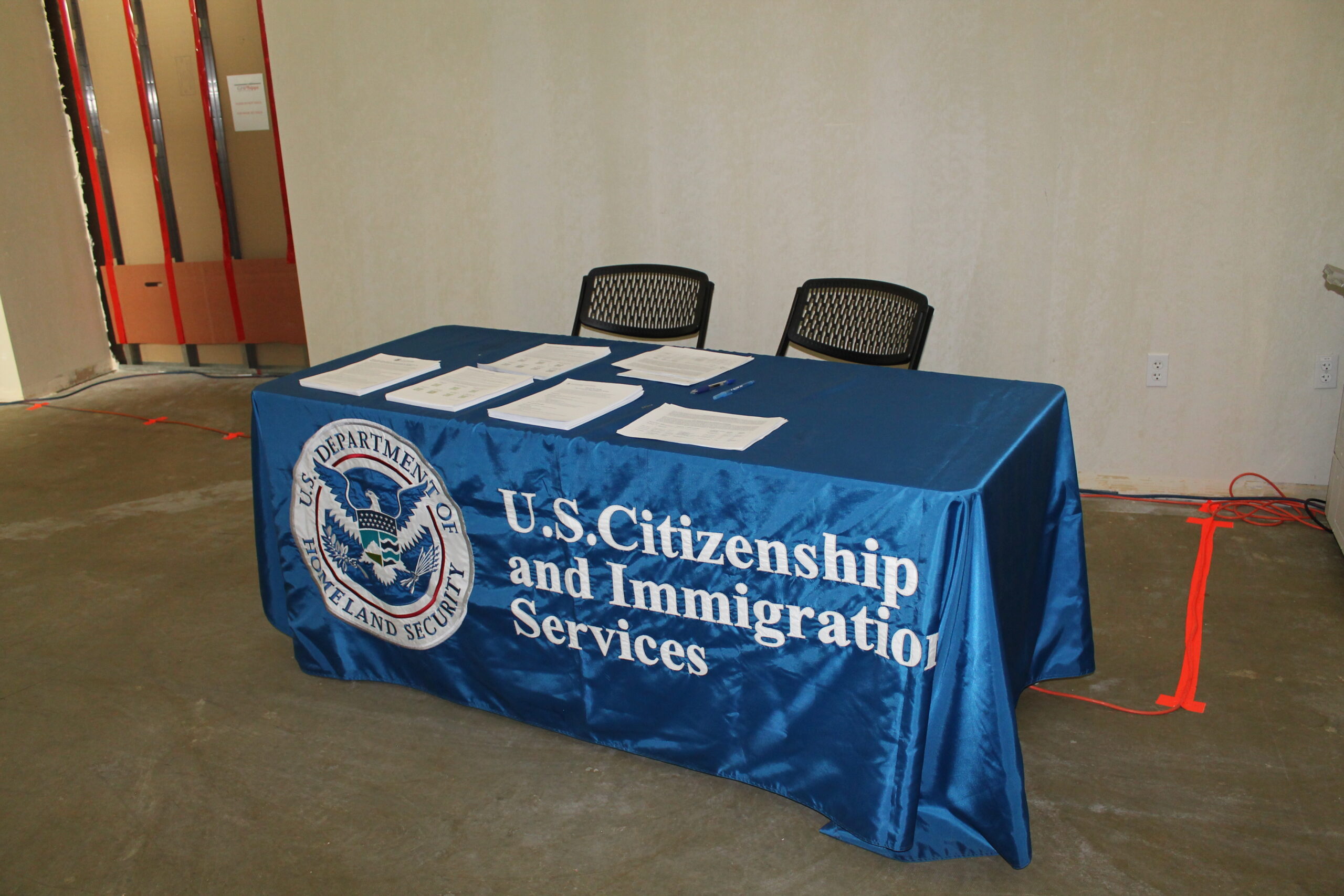
Since December 2023, the Colorado Lawyers Committee has partnered with the City of Denver and the state of Colorado to mobilize volunteer attorneys and non-attorneys to assist new immigrants. The volunteers help eligible families and individuals obtain work authorization documents and temporary protective status.
“Denver has been working to screen all eligible individuals in city-run shelters for these work permit clinics and hopes to continue to offer these clinics until we have successfully reached all eligible applicants,” Director for Denver’s Office of Immigrant and Refugee Affairs Atim Otii wrote to Law Week via email. Prior to her current role, Otii was an immigration attorney for Lutheran Family Services Rocky Mountains for six years.
Hundreds of volunteers have come together to help, according to CLC Executive Director Kristin Bronson. More than 1,000 applications have been processed since the start of the clinics.

“We started talking to the city and the state I guess back in September/October,” said Bronson, who was formerly the Denver city attorney. “It was a little unclear at the beginning.”
Bronson noted the state ended up focusing more on TPS, which is only available to a limited number of new immigrants. The state formed a partnership with Catholic charities toward the end of last year to host TPS clinics.
Bronson explained mobilization for this effort happened unusually fast. In just a few weeks, the first clinic was hosted. In comparison to the Colorado Afghan Asylum Project, this effort was pulled together almost immediately.
“Mid-December we pulled together training and immediately were servicing clinics by January 3rd — so in a matter of weeks,” said Bronson. “What took months when we did the Afghan asylum project, by necessity, took weeks here.”
“It was just such an urgent situation with people turning out of the shelters and living on the street with families and children,” Bronson said. “There was just this urgent need to act really quickly and to mobilize the legal community to support and that’s what we’ve been doing.”
“As a part of the City’s strategy to welcome and support newcomers on a path to self sufficiency, these work permit clinics serves as an opportunity for the City to assist folks in accessing sustainable employment and boost our local workforce,” Otii wrote.
Volunteers assisted immigrants at four clinics last week alone, according to Bronson. She noted budget cuts have been made to accommodate new immigrants in shelters, and the city was focused on getting people in the shelters work permits on an expedited basis at the end of last year.

CLC provides the effort with volunteer legal professionals. Some grant funding and city funding has paid for the cost to host the clinics. “And there is a discounted rate that is being paid to some of the immigration attorneys to provide more subject matter expertise,” said Bronson.
One of the biggest lifts for the clinics, according to Bronson, is getting partners from U.S. Citizenship and Immigration Services to attend and help volunteers process applications quickly. The clinics have leveraged paralegals, attorneys, retired attorneys, law students, in-house counsel, nonprofit attorneys, city attorneys and more.
CLC has recruited 552 legal professionals to help with the clinics. Of those, 270 volunteers have served at 10 clinics so far, eight hosted by the city and two that were hosted by the state. Volunteers hail from more than 50 private law firms.
Bronson explained the process volunteers are helping with gets people a social security number and a U.S. photo ID that can be used both to get a job and to potentially leverage benefits. She noted parents who are working could also now get benefits for children and infants since the entire family needs to have a social security number to qualify. “Hopefully all of that leads to the ability to afford housing,” Bronson added.
TPS applications are more challenging than a work authorization and the process is relatively complex like an asylum application. “We are in discussions with the city about what other or further efforts might be needed, like asylum clinics. But I’ll tell you that’s a much, much more complicated [effort to] staff,” Bronson said.
“The success of these work permit clinics has been a collective effort of community and legal volunteers, collaboration across city agencies, in partnership with the United States Citizenship and Immigration Services,” wrote Otii.
The CLC has open slots for more volunteers. Attorneys and non-attorneys are encouraged to register for upcoming clinics online.

